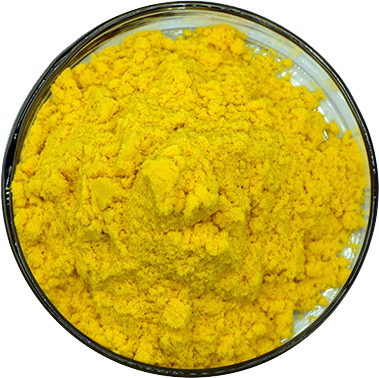Berberine Hydrochloride
【Name】: Berberine Hydrochloride
【Latin】: Berberinae Hydrochloricum
【Testing Method】: HPLC
【Properties and Characteristics】: Yellow crystalline powder, odorless or with a slight specific odor. Extremely bitter in taste. Soluble in hot water, slightly soluble in cold water or ethanol, very slightly soluble in chloroform, and insoluble in ether.
【Shelf Life】: Two years
【Storage Conditions】: The product should be sealed, protected from light, kept away from high temperatures, and stored in a dry, cool, and well-ventilated place.
【Packaging】: 25Kg/cardboard drum
【Product Applications】: Used in tablets, powders, capsules, soft candies, hard candies, etc.
【Origin】: Hubei, Sichuan, Hunan, Guizhou, southern Shaanxi, etc. Grows in mountainous forests or shady valleys at altitudes of 500-2000 meters, either wild or cultivated.
【Raw Material Introduction】: *Coptis chinensis* Franch., a perennial herb of the Ranunculaceae family and *Coptis* genus, has basal leaves that are firm and papery, ovate-triangular, fully divided into three parts, with ovate-rhombic segments that are deeply pinnately lobed and have sharp serrated edges. The lateral segments are unequally deeply divided into two parts. The petioles are 5-12 cm long. It grows wild or is cultivated in cool, damp, and shaded dense forests in valleys at altitudes of 1000-1900 meters.


